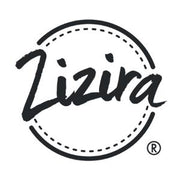Organic Food Label – How Does One Get It?
Zizira explorers have always been on a quest for hidden potentials of the region, so the farmers in Northeast India can benefit. We have picked several gems, stories which we have shared with you. Recently, when digging deeper for a better understanding of the farmers and their produce, something hit us.
Given that many farmers in this region use age old farming practices, without chemical pesticides, will the ‘naturally organic’ nature of their produce be a hidden potential, ready to be encashed? A low hanging fruit? But value can come only if the produce is labelled ‘Organic’. what does it take to get an Organic Food label?
While exploring to find out more about the procedure, rules and regulations to get an Organic food label, we hit upon an interesting book - ‘Organics – A Journalist’s Quest to Discover the Truth Behind Food Labeling’, written by Peter Laufer. The book highlights just what the title says: the truth behind what is considered organic in the USA, and what it means when we see a label that says ‘Organic’.
An Investigative Book
The author of this book, Peter Laufer, is Professor of Journalism at the University of Oregon. He has published over 15 books, reported over NBC radio and, as an NBC news correspondent, has produced documentaries.Download a copy of the 54 medicinal plants & herbal remedies of Meghalaya
Obviously, he has the deftness to handle all mediums of communication and it shows in the style of his writing. The book on ‘Organics’, published in 2014, is his most recent work. Eminently readable, the book is almost like a light mystery novel with twists and turns, bad guys, well-meaning folks and with an end which comes as a surprise – the works. It makes an interesting story.

Image source: Amazon
U.S. Organic Industry is Booming
The size of the industry may come as a surprise to you. The booming U.S. organic industry posted new records in 2015, with total organic product sales hitting a new benchmark of $43.3 billion, up a robust 11 percent from the previous year's record level and far outstripping the overall food market’s growth rate of 3 percent, according to the Organic Trade Association’s 2016 Organic Industry Survey.Source: As you can see, a lot is at stake in this industry. Products stamped 'Organic' are more saleable and command a higher price. Are you not rubbing your hands to know what Peter has to say in his book?
On the Trail of two Products with Organic Food Labels
Peter goes on a trail to trace the origin of two products from the shelves of popular retail outlets: one a packet of walnuts, bought from Trader Joe’s and another a can of beans from Natural Directions. The labels on both the products proudly say 'ORGANIC'. The Walnuts are said to be from 'Kazakhstan' and the can of beans from 'Bolivia'.He finds the walnuts are rancid and the journalist in him smells a story – maybe he should trace the produce back to its origin? The can of beans is labelled Organic from Bolivia and this too raises his curiosity. These trigger a quest. He ends up getting a deeper look into the world of organics and shares them with the readers. In the Preface the author writes:
I invite you, dear reader, to come with me as I chase a couple of food products produced in the Third World from my local grocery store shelves back to their point of origin, and to join me as I investigate whether we shoppers and cooks and eaters are being deceived by the seductive word “Organic”. (Page vii, Preface of the Hard bound edition published by Lyons Press in 2014.)The question he seeks an answer to is: "Is what’s sold as organic really organic?" The fact that he chooses to follow the trail of a product sourced from a ‘Third Word’ and not from within the U.S was a point of contention for us, but decided to stay focused on learning more about what the book has to say about the world of organic foods.
The author takes the packet of rancid walnuts back to the store from where he bought it and he is given a replacement – this time with walnuts grown in California. He finds that nuts grown in Kazakhstan were no longer on the shelf. Why?
Logically, if demand outstrips local supply (products made in the U.S.) nuts from other places would have come onto the shelves. But who guarantees that nuts from Kazakhstan are organic? He does not get a clear reply from the store authorities.
What Does That 'Organic' Label Really Mean?
The definition of Organic by the US department of Agriculture means that at least 95% of all the ingredients in it meet the government’s standard for organic. So, 95% of the ingredients are free of chemical herbicides and pesticides, free of GMO, not gone through any radiation and have no chemical preservatives.The same rule applies in European Union Govt. Regulations too. The mystery, the author says, lies in that 5 percent. Does he find the origin of the walnuts and the beans? Read the rest of the story here.
Are you a diehard believer of organic? If yes, do tell us - will you pay more for a produce that is not certified organic, but is from a trusted source, from a farmer who uses natural means of cultivation? Click here to go to the second part of this story.

